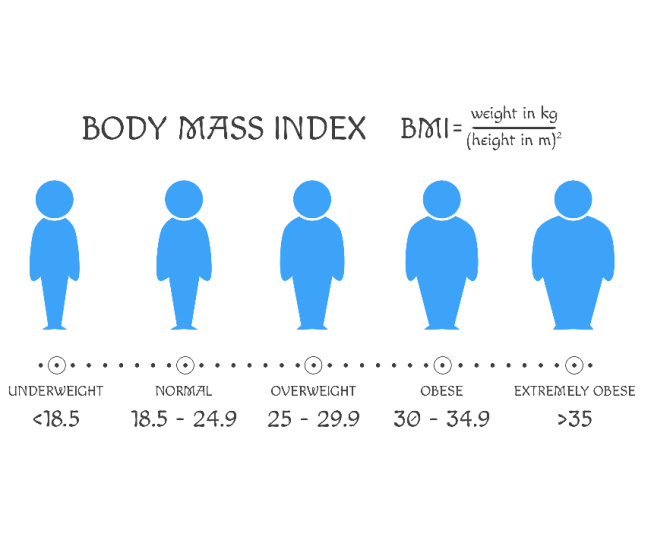
Is BMI related to sexual dysfunction?

Yes, people with a higher BMI are more likely to have sexual problems.
BMI stands for body mass index, a measurement that estimates a person’s body fat based on their height and weight. BMI is also used to determine whether a person is overweight or obese.
In general, a BMI ranging from 18.5 to 24.9 is considered normal weight. Overweight people have a BMI between 25.0 and 29.9. And a BMI over 30 is considered obese.
Being overweight and obese can affect sexual function in both men and women.
For example, research published in 2020 found that women who were overweight or obese were less likely to be sexually active and more likely to have difficulties with arousal, vaginal lubrication, orgasm and pain compared to women who were considered normal weight. Women with higher BMIs also tended to feel more sexual distress and less sexual satisfaction.
In men, obesity has been linked to low testosterone, which can affect sexual desire and arousal. Erectile dysfunction is more common in obese and overweight men.
Being obese or overweight can be related to health conditions that affect sexual function, such as the following:
- Diabetes (Learn more: How can diabetes affect a woman’s sex life? and How can diabetes affect a man’s sex life?)
- Heart disease
- Abnormal lipid profile
- Arthritis
- Pelvic floor disorders
Obesity and being overweight can have psychological effects on sexuality, too. People may feel depressed about their situation or anxious about intimacy. They might face poor body image, low self-esteem, and a lack of confidence. Some worry that a sexual partner won’t find them attractive and avoid dating and relationships altogether.
Not all obese individuals struggle with sexual concerns, but if you feel that being overweight is impairing your sex life, ask your doctor if a weight loss program is right for you. Good nutrition and exercise can improve your physical health, lower your risk for diabetes and heart disease, and boost your mood and confidence. All of these steps can improve your sexual health.
Resources
- International Society for Sexual Medicine - “Is there a link between obesity and low testosterone in men?”
https://www.issm.info/sexual-health-qa/is-there-a-link-between-obesity-and-low-testosterone-in-men - “Obesity and Sexual Function Discussed in Review”
(January 1, 2018)
https://www.issm.info/news/sex-health-headlines/obesity-and-sexual-function-discussed-in-review/ - The Journal of Sexual Medicine - “Association Between Body Mass Index and Female Sexual Dysfunction: A Cross-sectional Study from the Data Registry on Experiences of Aging, Menopause, and Sexuality”
Faubion, Stephanie S. MD, MBA, et al.
(Full-text. Published: August 5, 2020)
https://www.jsm.jsexmed.org/article/S1743-6095(20)30729-3/fulltext - MedlinePlus - “Body Mass Index”
(Review date: June 28, 2018)
https://medlineplus.gov/ency/article/007196.htm




